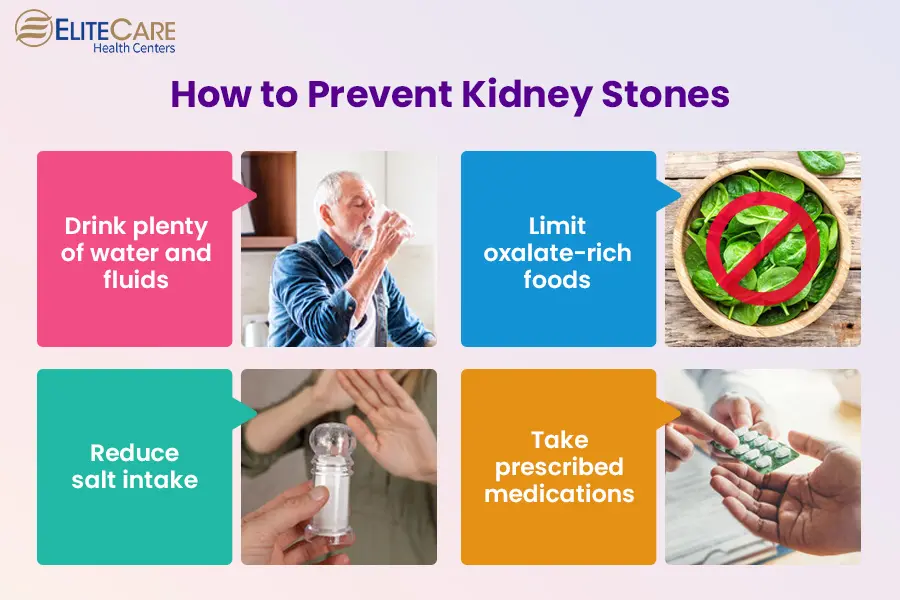Kidney Stones vs UTI: Comprehending the Overlapping Manifestations and Therapy Approaches
Kidney Stones vs UTI: Comprehending the Overlapping Manifestations and Therapy Approaches
Blog Article
Recognizing the Secret Distinctions Between Kidney Stones and Urinary System Infections: A Detailed Summary for Patients
Comprehending the differences in between kidney stones and urinary system system infections (UTIs) is important for clients that might be experiencing comparable signs yet encounter significantly various wellness obstacles. As we discover these critical aspects, it ends up being clear that acknowledging the special features of each problem can greatly influence individual end results.
Summary of Kidney Stones
The development of kidney stones, a excruciating and often debilitating condition, underscores the vital significance of keeping kidney health and wellness. Kidney stones, also referred to as renal calculi, are strong masses that establish from crystals in the urine. These stones can differ in size from a grain of sand to a golf round and can live in any part of the urinary tract. The main kinds of kidney stones include calcium oxalate, calcium phosphate, uric acid, struvite, and cystine stones, each with distinct reasons and danger aspects.
Several elements add to the development of kidney stones. Additionally, metabolic conditions and specific medical conditions might incline individuals to stone formation.
Symptoms of kidney stones can consist of serious flank hematuria, queasiness, and discomfort, which usually prompt urgent clinical evaluation. Therapy choices differ, varying from boosted liquid consumption and dietary modifications to medical treatments such as lithotripsy or surgical removal, depending on the dimension and area of the stones. Recognizing these facets is vital for efficient avoidance and management.
Overview of Urinary System System Infections
Urinary system tract infections (UTIs) represent an usual yet substantial health and wellness problem, impacting millions of individuals every year. These infections happen when germs enter the urinary system, which includes the kidneys, ureters, bladder, and urethra.
The risk factors for developing a UTI include sex-related task, particular kinds of birth control, urinary retention, and a history of previous infections. Straightforward UTIs are normally restricted to the bladder and are extra common in healthy and balanced individuals, while complicated UTIs might involve the kidneys and occur in those with underlying wellness concerns.
Trigger medical diagnosis and treatment are necessary to protect against problems, such as persistent infections or kidney damage (Kidney Stones vs UTI). Typically, UTIs are treated with antibiotics, and safety nets can be employed for those with regular events
Usual Signs And Symptoms Contrast
Signs of urinary system infections and kidney stones can commonly overlap, resulting in complication in medical diagnosis. Both problems can provide with discomfort in the reduced abdomen or back, but the nature and place of the pain frequently differ. In urinary system tract infections (UTIs), people usually experience a burning sensation throughout urination, regular advises to urinate, and cloudy or strong-smelling urine. In comparison, kidney stones have a tendency to cause serious, acute pain that emits from the back to the lower abdominal area and groin, frequently called colicky discomfort.
In addition, UTIs might be come with by fever and chills, especially in extra serious instances, while kidney stones can result in nausea or vomiting and vomiting because of intense discomfort. Both problems can cause blood in the pee (hematuria), but the existence of blood is extra commonly connected with kidney stones. While pain during urination is a characteristic of UTIs, kidney stones usually offer with even more sharp pain episodes, which may go and come. Recognizing these sign distinctions can assist patients in recognizing their condition, although medical examination continues to be crucial for exact diagnosis and therapy.
Diagnosis Techniques
Just how can healthcare professionals accurately separate in between kidney stones and urinary system tract infections? The diagnostic procedure starts with a complete case history and a comprehensive evaluation of the client's signs. Clinicians commonly do a checkup, which may expose tenderness in the abdomen or flank region, leading the diagnostic path.
Laboratory examinations play a critical role in comparing his comment is here these two problems. Kidney Stones vs UTI. A urinalysis can determine the existence of blood, crystals, or germs, which are a measure of either problem. In instances of urinary tract infections, the urinalysis might show a significant existence of you can try these out white blood cells and nitrites, while kidney stones may provide with certain crystals
Imaging researches, such as stomach ultrasound or computed tomography (CT) scans, are essential for picturing kidney stones. These imaging techniques allow doctor to analyze stone dimension, location, and potential blockages in the urinary system. On the other hand, urinary system tract infections generally do not need imaging unless problems are presumed.
With each other, these diagnostic techniques encourage health care professionals to properly diagnose and set apart between kidney stones and urinary system tract infections, making certain that individuals obtain suitable treatment and administration.
Therapy Alternatives and Avoidance
While both kidney stones and urinary tract infections (UTIs) call for timely therapy, their administration methods differ dramatically.
The treatment for kidney stones frequently includes pain monitoring, hydration, and in some instances, clinical treatments such as extracorporeal shock wave lithotripsy (ESWL) or ureteroscopy to get rid of or break down stones. Individuals are frequently encouraged to enhance liquid intake to promote stone passage and reduce reoccurrence. Nutritional adjustments might likewise be required, depending upon the stone kind.
In contrast, UTIs are mostly treated with prescription antibiotics to get rid of the bacterial infection. The details antibiotic prescribed relies on the microorganisms identified and regional resistance patterns. Extra actions, such as increased fluid consumption and urinary system anesthetics, might aid relieve symptoms.
Avoidance techniques vary as well; for kidney stones, maintaining appropriate hydration and adhering to nutritional constraints can be efficient. For UTIs, preventive strategies consist of proper health practices, peing after sexual intercourse, and potentially preventative prescription antibiotics for reoccurring infections. Recognizing these treatment and prevention techniques is important for efficient administration and to minimize the threat of complications associated with both conditions.
Conclusion

Comprehending the differences between kidney stones and urinary system tract infections (UTIs) is essential for individuals that may be experiencing comparable signs yet face greatly various health obstacles. The main types of kidney stones consist of calcium oxalate, calcium phosphate, uric acid, struvite, and cystine stones, each with distinctive reasons and danger aspects.

Report this page